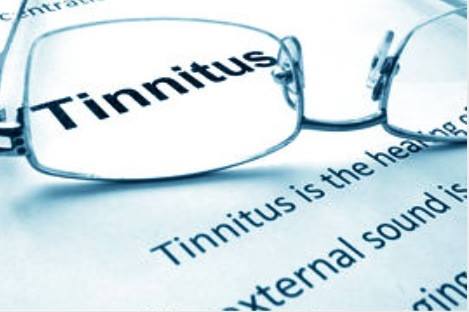Blog
-

Tinnitus affects nearly 10% of the US adult population, more than half do not discuss it with their doctor.
 18 Aug , 2016
18 Aug , 2016
(Study shines light on tinnitus as a major public health concern, tinnitus guidelines recommend that a hearing aid evaluation is an appropriate management option ).
The following is adapted from Dr.Brian Taylor’s post on his Hearing News Watch column.
A recent JAMA Otolaryngology Head & Neck Surgery study, published online July 21, indicated that tinnitus affects nearly 10% of the US adult population, and more than half of individuals with tinnitus do not discuss it with their doctor.
Using the 2007 National Health Interview Survey (NHIS) data, Jay Bhatt and Harrison Lin of the Department of Otolaryngology at the University of California, Irvine, and Neil Bhattacharyya of Harvard Medical School, queried more than 75,000 adults over the age of 18 about the prevalence, duration, severity, and regularity of their tinnitus. Results indicated that 10.5% of men and 8.8% of women reported tinnitus. Over half (56%) of respondents reported their tinnitus had been a problem for more than 5 years, while 27% had dealt with their tinnitus for more than 15 years.
According to the researchers, of those experiencing tinnitus, 36% reported nearly constant tinnitus, 15% had noticeable symptoms at least once per day, and 14.6% had noticeable tinnitus once per week. Bedtime seemed particularly problematic, as 38.4% of respondents said tinnitus was noticeable in the evening. Additionally, the subjective severity reported by respondents was notable, as 7.2% believed their tinnitus was a “big or very big” problem, 20.2% believed it was a “moderate” problem, and 41.6% reported it was a “small” problem.
Considering about 72% of respondents said they had either “no” problem or a “small” problem with their tinnitus, for many patients with persistent tinnitus, the symptoms may be tolerable and, therefore, do not require any intervention. On the other hand, Bhatt et al’s data suggests tinnitus management options are not adequately addressed in a large segment of the population who may be suffering from it.
Many physicians aren’t following guidelines. Perhaps the most interesting aspect of this study was the lack of adherence on the part of physicians to follow the recent evidence-based tinnitus management guidelines published in 2014 by the American Academy of Otolaryngology-Head & Neck Surgeons (AAO-HNS). These guidelines are designed to address patients with tinnitus that has persisted more than 6 months, and are intended to provide a framework for how patients with tinnitus are evaluated and managed in the clinic. The guidelines summarize evidence—both for and against—the use of education, counseling, sound therapy, cognitive behavioral therapy, medications, dietary supplements, and other various management approaches. For example, they recommend that clinicians should not use medical therapy, including anti-depressant, anticonvulsants and intratympanic medications, for routine management of tinnitus because there is insufficient data supporting their effectiveness.
In the Bhatt et al study, it was reported that 49.5% of individuals with tinnitus discussed it with their physician. Their survey also found 84.8% of patients had never tried any form of remedy, and that the most common intervention discussed by physicians was medication—a recommendation not supported by the 2014 AAO-HNS guidelines.
It is also noteworthy that, even though the AAO-HNS tinnitus guidelines recommend that a hearing aid evaluation is an appropriate management option, it was rarely discussed by physicians. Additionally, although not supported by solid evidence, the guidelines also encourage physicians to present sound therapy (masking devices) as an option; however, according to this study it too was rarely made available to patients.
“This study shines light on tinnitus as a major public health concern, and with awareness comes more critical investigation and better management recommendations from doctors on the front-line of care,” says Jennifer Gans, PsyD, a UC-San Francisco clinical psychologist and founder of MindfulTinnitusRelief. “While we cannot look, at this time, to a pill or operation to ‘cure’ tinnitus, there are multiple effective management tools to help shift tinnitus from the ‘bothersome’ category into the ‘non-bothersome’ category…Mindfulness and cognitive behavioral counseling may not be as easy to administer as a pill or surgical intervention, but what we are learning is that the management of bothersome tinnitus involves changing one’s perspective.” (See Dr Gans’ article “Mindfulness Based Tinnitus Stress Reduction: Unraveling the Gordian Knot of Tinnitus” in the July 2015 Hearing Review.)
The study also points to the fact that the audiology community has ample opportunities to provide effective long-term tinnitus management strategies, including the recommendation of hearing aids and sound relief devices. Long-term management strategies supported by the AAO-HNS tinnitus guidelines also support the use of non-device strategies, including cognitive behavioral therapy, support groups, multidisciplinary education, and mindfulness stress relief training that could be employed by hearing care professionals in their intervention strategies with patients suffering from tinnitus.
Richard Tyler, PhD, tinnitus researcher at the University of Iowa, said the Bhatt et al article “highlights the confusion about helpful treatments available to tinnitus patients, many such approaches like Tinnitus Activities Treatment include Cognitive Behavioral Training (CBT). In the US, audiologists (who provide tinnitus management services) provide counseling and sound therapy. They do not market themselves as providing a full 10-week CBT therapy.”
Dr Tyler went on to say that “the article does highlight the different primary functions associated with tinnitus, including thoughts and emotions, hearing, sleep, and concentration. We (audiologists) need to do a better job alerting the general public that help is available.”
Author: Brian Taylor, AuD, editor of the Hearing News Watch, at Hearing Health Matters.
Source: Hearing Health Matters.
Image credit: Designer 491





























































































































































































































































































































































































































































































































































































